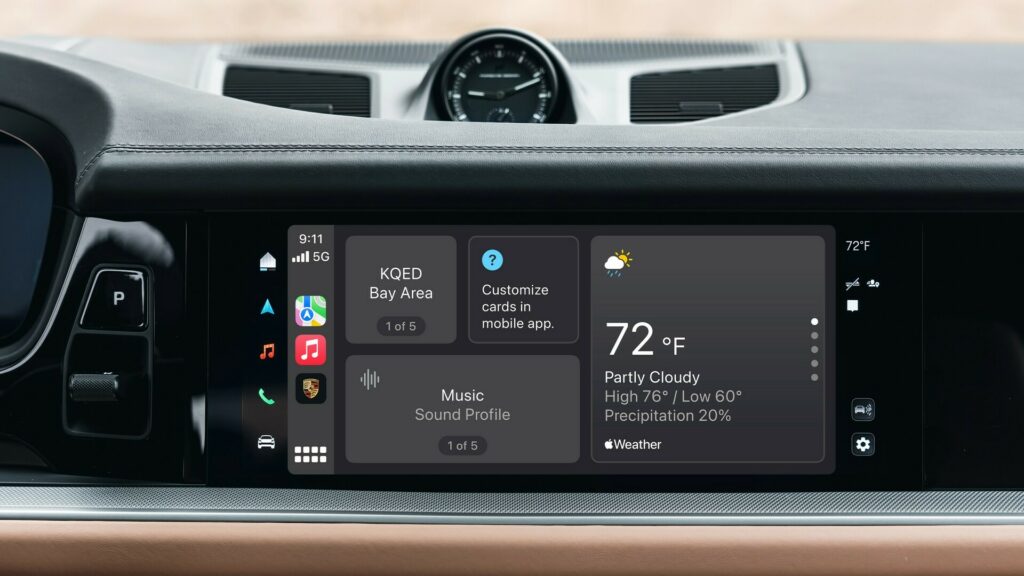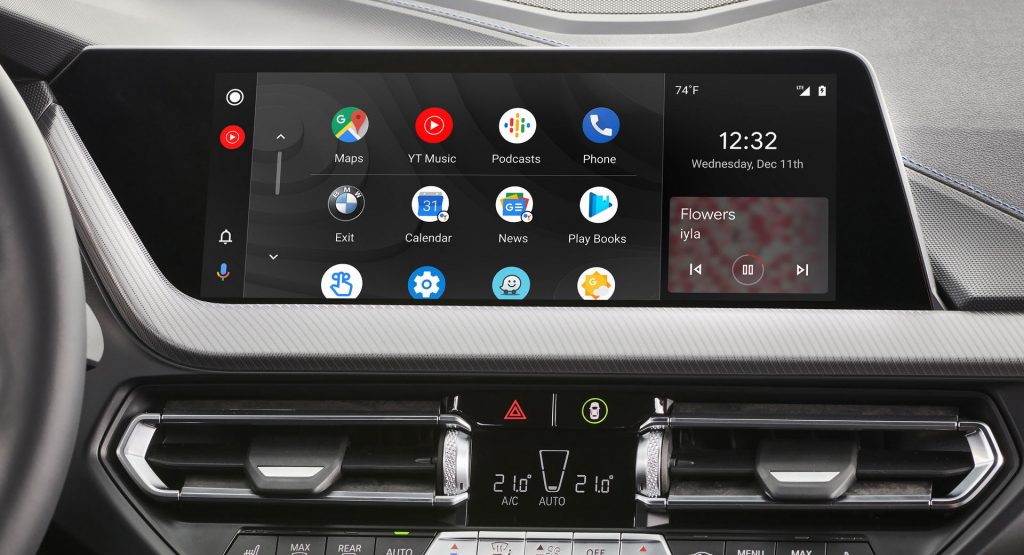- General Motors is dropping Apple CarPlay and Android Auto in favor of its own systems.
- Tesla and Rivian are among the most notable carmakers that do not offer smartphone integration.
- Both EV and ICE buyers say not having smartphone mirroring is a deal-breaker.
A new study has revealed just how important Apple CarPlay and Android Auto are to new car buyers worldwide. It spells bad news for the brands that don’t offer smartphone mirroring.
The McKinsey & Co study reveals that among all global car buyers, 30% of those in the market for an EV and 35% of those looking to buy a combustion car say not having Apple CarPlay or Android Auto is a deal-breaker. This sentiment is shared in the U.S., where 25% of EV buyers and 38% of combustion car buyers said they’re not interested in purchasing a vehicle if it doesn’t have smartphone mirroring.
Read: GM Phasing Out Apple CarPlay And Android Auto From Its Vehicles
Wired and wireless smartphone mirroring has become increasingly common in recent years. Wards Intelligence says that more than 90% of new vehicles as of mid-2023 had the systems, and many motorists prefer them over a vehicle’s native infotainment software.
Interestingly, the study revealed that 30% of EV buyers would be willing to pay for smartphone integration while 17% of gas and diesel-powered cars would be willing to do the same, Auto News reports.
The study also asked respondents what they would do if Apple CarPlay and Android Auto were removed from their current vehicles. Globally, 35% of people said they would use the standard infotainment system instead, while 52% said they would use their smartphone, and 14% would change brands for their next vehicle purchase.

Tesla and Rivian are perhaps the two most notable Western manufacturers that don’t offer Apple CarPlay or Android Auto, forcing owners to use their smartphone-inspired infotainment systems. At one stage, Rivian said roughly 70% of its customers wanted smartphone integration, but this figure plummeted to 30% when customers became familiar with the standard system.
General Motors will follow Tesla and Rivian and ditch Apple CarPlay and Android Auto in new models. It’s confident that its new system will prove popular among buyers.
“The infotainment experience should feel custom to each driver and vehicle,” GM spokesperson Anna Yu said. “We’re moving toward a native system that easily syncs with the customers’ phone of choice, and enables deeper integration with vehicle controls and status, alongside features like voice assistant, navigation, music, texts, calls, apps and more.”
GM also believes forcing owners to use its native infotainment system will open it up to a whole new stream of revenue where it’ll be able to sell service subscriptions to owners.




